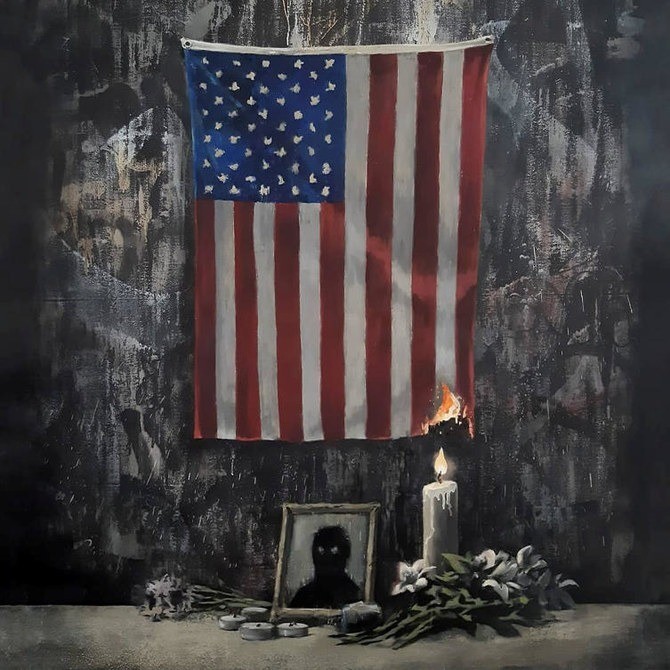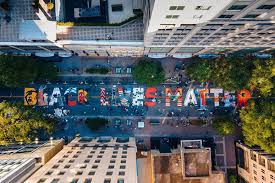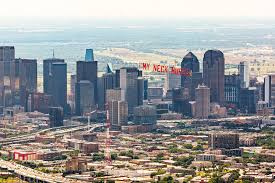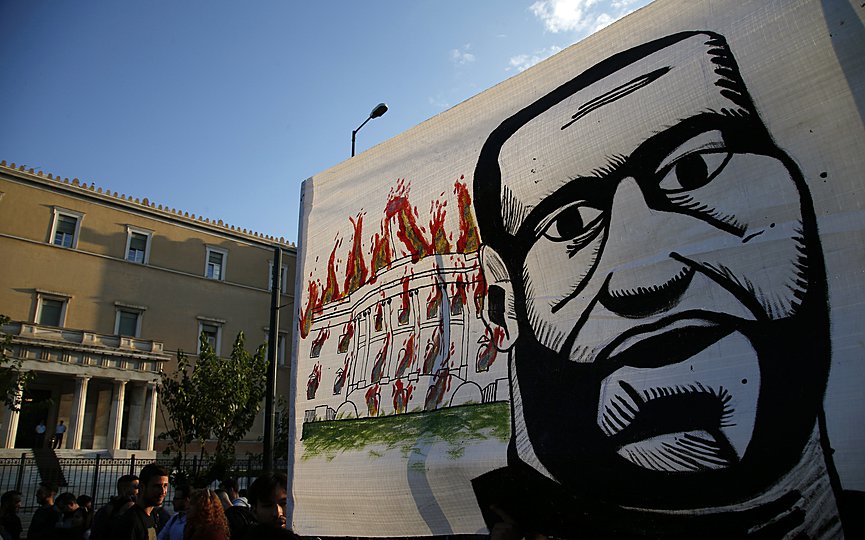UNITED STATES – Paintings, installations, and other artworks play a huge part in the Black Lives Matter protests, which are giving birth to a new wave of street art. These labors of love not only express the severity of the issue but also play an important role in education.
Nikkolas Smith’s paintings spread like a wildfire across social media platforms. Smith told Architectural Digest “George Floyd’s life mattered. Black lives in this country are being destroyed by the virus of racism, fear, and hatred. It is up to everyone to take a stand and actively work to tear down this centuries-old pandemic. NOW.”

Banksy protested through his works on Instagram where he depicted an American flag catching fire and he wrote, “At first I thought I should just shut up and listen to black people about this issue, but why would I do that? It’s not their problem, it’s mine. People of color are being failed by the system. The white system. Like a broken pipe flooding the apartment of the people living downstairs. This is a white problem and if white people don’t fix it, someone will have to come upstairs and kick the door in.”

A local artist covered the streets with murals as they demonstrated their support in uptown Charlotte.

Artist Jammie Holmes has flown banners showing the last words of Floyd “Please, I can’t breathe”, “My stomach hurts”, “Everything hurts”, and “They’re going to kill me” in a black font so they would stand out against the sky. The fifth phrase, “My neck hurts” was in red text.
The music industry across the US joined the movement by honoring “Black Out Tuesday” on the 2nd of June. The industry put a hold on all its regular activities to send a message of solidarity in the fight against racism. This initiative was undertaken by Jamila Thomas and Brianna Agyemang, which was supported by major labels like Warner Music Group, Universal Music Group, and Sony Music. They released a statement calling for action online on a platform called #TheShowMustBePaused, which said “Tuesday, June 2nd is meant to intentionally disrupt the workweek. Monday suggests a long weekend and we can’t wait till Friday for change. It is a day to take a beat for an honest, reflective, and productive conversation about what actions we need to collectively take to support the Black community.”



